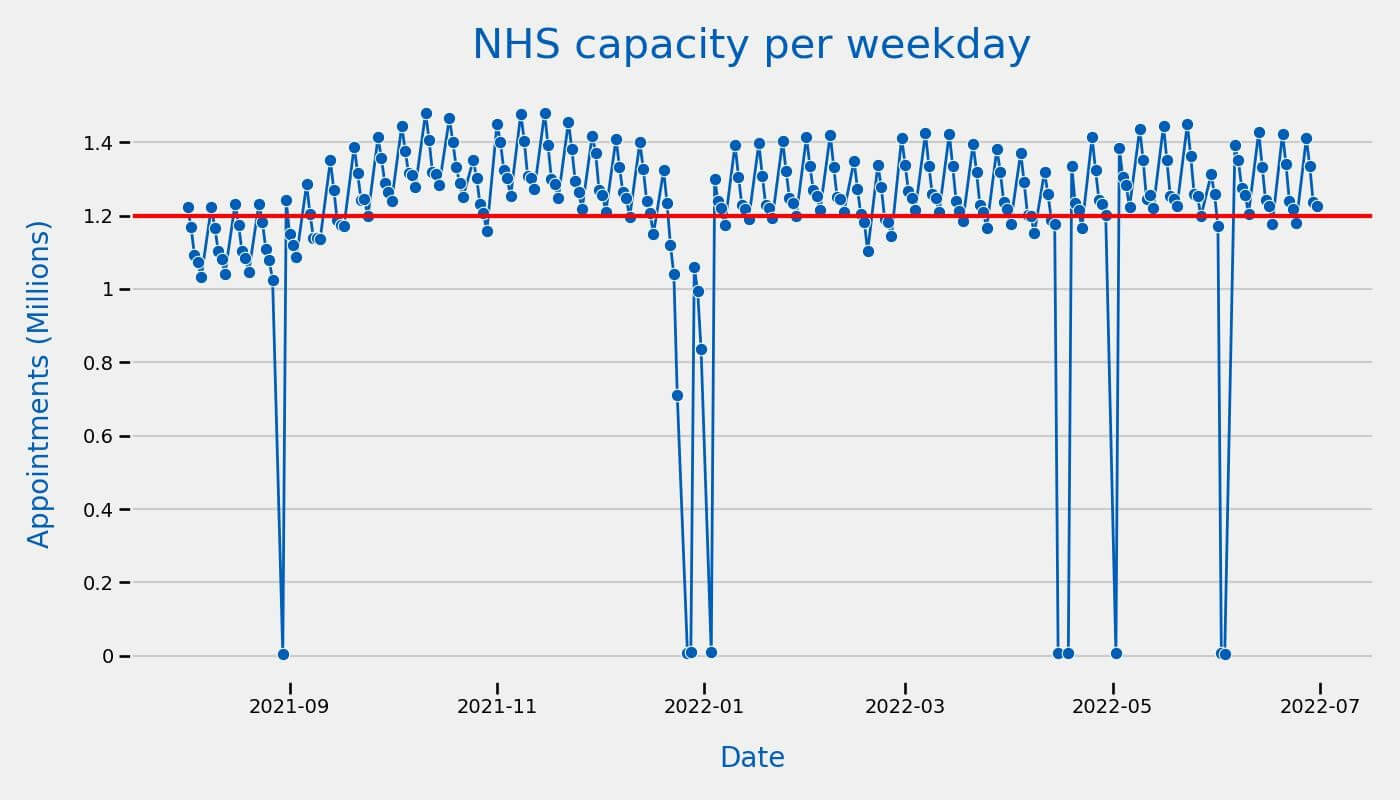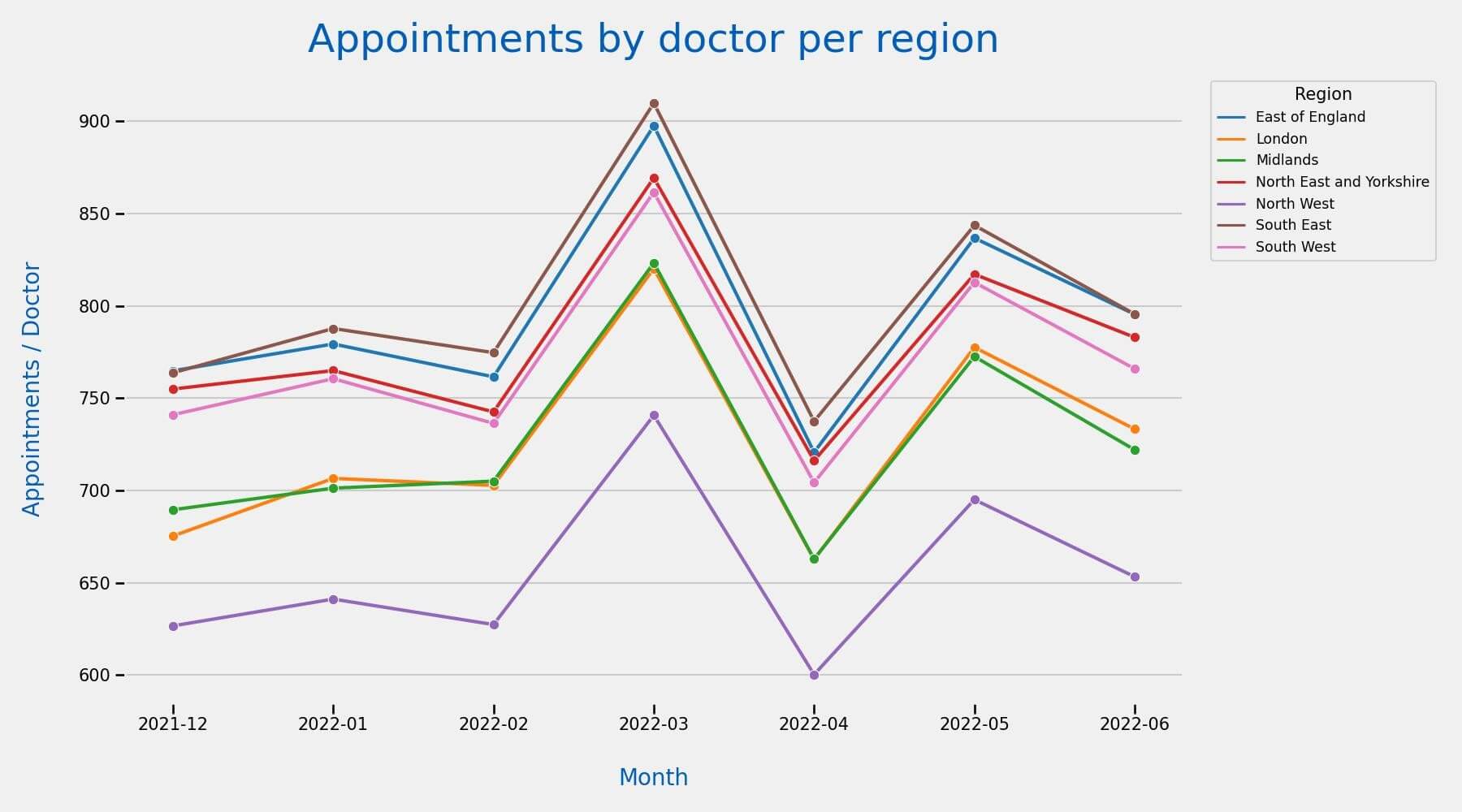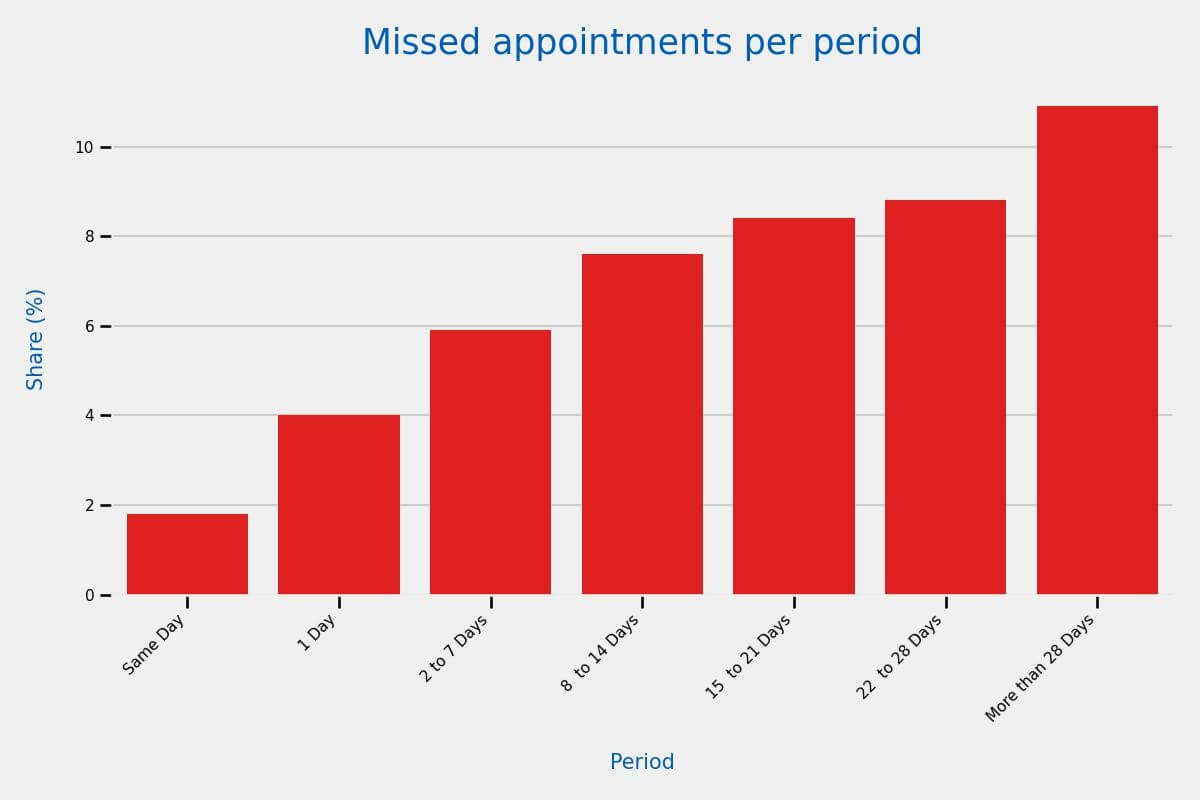| Tools | Python |
|---|---|
| Objective | Data Wrangling, Data Exploration, Diagnostic Analysis |
| GitHub | View Project |
The NHS faces increasing pressure to balance healthcare service demands with limited resources. To support the NHS in making informed decisions on resource allocation and potential infrastructure expansion, this analysis focused on:
Service Utilization: Evaluating appointment volume trends and utilization patterns.
Missed Appointments: Identifying factors influencing missed appointments to reduce associated costs.
Staff Capacity: Assessing doctor workload and regional disparities to inform equitable resource distribution.
Data from internal NHS sources and external public datasets provided a foundation for understanding regional differences, workforce burden, and patient engagement trends.

Decline in Doctors: A 1.91% reduction in doctor numbers over seven months, increasing workload pressures.
Regional Disparities: Significant differences in appointments per doctor by region (up to 169 per month), highlighting an uneven distribution of staff resources.

Missed Appointment Trends: Increase in missed appointments, especially for those scheduled more than 28 days in advance.
Same-day Appointments: Show lowest missed appointment rates (<2%) suggesting that reducing booking lead time may improve attendance rates.

To optimize NHS resources and improve efficiency:
Explore Staffing and Resource Allocation: Consider reassigning staff based on appointment volumes and regional demand.
Address Overcapacity: Implement strategies to manage high appointment volumes on weekdays.
Improve Appointment Attendance: Offer same-day or short-notice appointment slots to reduce missed appointments.
Incorporate Population Density Data: Assess regional appointment needs relative to population for targeted resource planning.